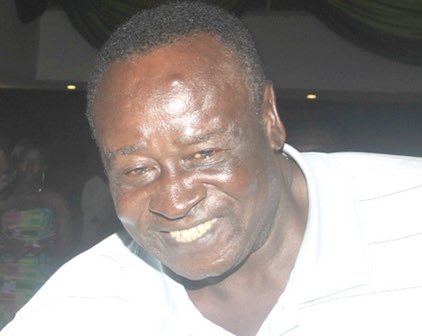|
Getting your Trinity Audio player ready...
|
It was sometime in 2015 — January, I believe — a day after Ghana had beaten Algeria to retain a fighting chance of reaching the knockout stages at that year’s Africa Cup of Nations.
Asamoah Gyan — playing through a bout of fever — got the crucial, last-gasp winner and was, quite reasonably, the toast of Ghanaian fans. On this Saturday, though, another man was explaining to me, with great conviction, why he — not Gyan — should be the more most celebrated goalscorer in the nation’s history.
I had heard of Kwasi Owusu, a former player and captain of the Black Stars who, in his old age, now worked as a lotto vendor. His home, quite comfortable and located in Estates, one of Sunyani’s nicer residential areas, hinted at a man who had seen better years.

It was a shrewd acquisition from the State Housing Company (SHC) Limited, he related, when times were easier. Those were his days as the country’s top striker, only unfortunate to star in a period when record-keeping wasn’t as big a deal as it now is. It’s why many find it hard to dispute — or confirm — Owusu’s claim that he scored far more goals (69, he quoted) than the half-century or so for which Gyan is hailed as the Stars’ most prolific of all-time.
“Ask Ken Bediako,” Owusu urged, nudging me ever so gently in the direction of a man widely regarded as Ghana’s foremost football historian, to back his case up. The actual number of Owusu’s international goals — according to Thomas Freeman Yeboah, a younger but equally reputable archivist — was just shy of 40. The debate — until his dying day, March 30, 2020 — wasn’t quite settled in Owusu’s mind, but the fact that it took such circumstances to dig out his exploits from beneath the sands of time might have been a greater and, perhaps, more legitimate cause for complaint.

For about a decade, beginning in the late sixties, Owusu was Ghana’s go-to man for goals. And he scored them for fun, even registering four- and five-goal hauls. It’s unfortunate his time with the Stars coincided with a dry spell for the team, that rough patch between Ghana’s second and third Nations Cup titles. It was, however, at his club, Sunyani-based Bofoakwa Tano, that Owusu’s legacy is indelibly etched.
Yet even in the city where Owusu lived and died, some latter-day football fans — like a couple of friends this writer has in Owusu’s Estates neighborhood — weren’t aware a person so accomplished lived a stone’s throw away until I told them. In Bofoakwa’s green and white colors, Owusu played out his entire club career, inspiring some of the Hunters’ best seasons of top-flight football and also mentoring Dan Owusu — another brilliant national striker who, in three consecutive years, won the league’s goal-king prize.
“He was a bona fide legend who, through all his life, had immense love for the game,” says David Obeng Nyarko, Bofoakwa’s current General Manager.
“His most intense affections, however, were reserved for Bofoakwa Tano — so intense, in fact, that offers from bigger Ghanaian clubs couldn’t sway his loyalties.
“Even after retirement and in his older years, Owusu remained cheerful and retained a fresh sense of humor, sharing interesting stories of his playing days with all.”
In his home, trophies and souvenirs from his time as a footballer filled cabinets and lined walls, and while the recorded files from the session got lost before they could be transcribed and subsequently composed into a proper write-up, my recollections of the encounter — some vague, many vivid — add up to this tribute.
Physically, even when his youthful vigor and skill had long evaporated, Owusu’s build — ‘Power House’, they called him – was an enduring reminder of why he must have been such a handful to mark, but I could sense that his true greatness – though unfairly forgotten — radiated from a deeper place.
A place that, even as we parted, I felt honored to have been granted a tour of.
NY Frimpong — Daily Mail GH





